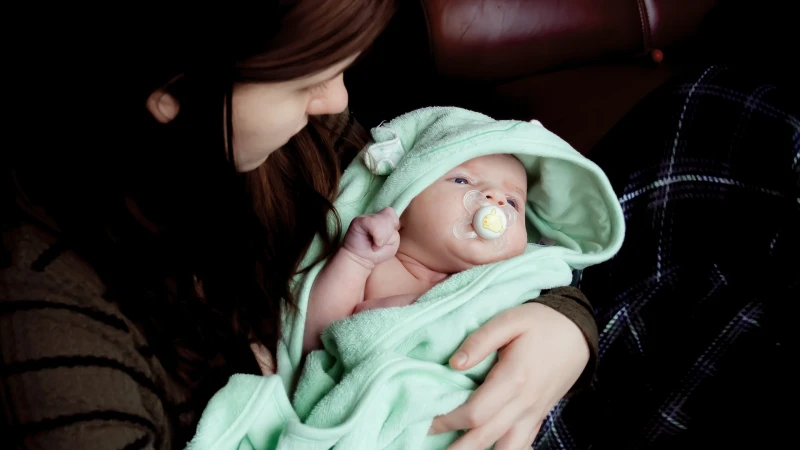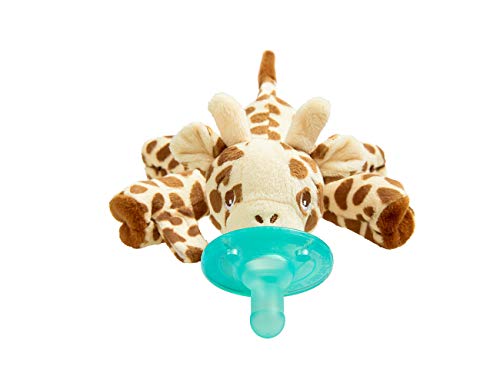Disclosure: This post may contain affiliate links, meaning we get a commission if you decide to make a purchase through our links, at no cost to you. Please read our disclosure for more info.
Welcoming a premature baby into the world comes with unique considerations, including their developmental needs. When it comes to pacifiers, preemies may require special ones designed specifically for their delicate size and developmental stage. These specialized pacifiers provide comfort and support to premature babies during their early days.
Premature babies have smaller mouths and are still developing their sucking reflexes. Special preemie pacifiers are designed with these factors in mind, offering a smaller size, softer materials, and a shape that promotes proper oral development. These features help ensure a secure and comfortable fit for your little one.
In This Post:
What Pacifiers Do NICU Use?
In the Neonatal Intensive Care Unit (NICU), healthcare professionals may use specific pacifiers tailored to premature babies’ needs. These pacifiers are often made of medical-grade silicone or latex, ensuring safety and hygiene for the fragile babies in their care. The NICU pacifiers are typically smaller in size and designed to support the development of the baby’s oral muscles and coordination.
Healthcare providers in the NICU may choose pacifiers that have a unique shape, such as those with a bulb-like tip or a flatter nipple design. These specialized pacifiers aim to facilitate proper oral development, encourage suckling, and provide comfort to the preemie babies during their stay in the NICU.
When Can You Give a Preemie a Pacifier?
The timing of introducing a pacifier to a preemie depends on various factors, including their gestational age, overall health, and feeding progress. Healthcare professionals in the NICU closely monitor the baby’s development and provide guidance on when it’s appropriate to introduce a pacifier.
In some cases, premature babies may be given pacifiers early on to support their sucking reflex and provide comfort during non-nutritive sucking. Non-nutritive sucking refers to the act of sucking without obtaining nutrition, and it can help with the baby’s self-soothing and oral motor development.
It’s crucial to follow the guidance of your healthcare provider regarding the introduction of a pacifier. They will consider your baby’s unique needs and developmental progress to determine the right time for pacifier use.
Why Are Premature Babies Given Pacifiers?
Premature babies are often given pacifiers, also known as dummies or soothers, for several reasons. Here are some of the benefits and reasons behind using pacifiers for premature babies:
- Non-Nutritive Sucking: Pacifiers allow premature babies to practice and strengthen their sucking reflex, which is essential for feeding and overall oral development.
- Self-Soothing: Pacifiers provide comfort and can help premature babies self-soothe, promoting a sense of calm and relaxation.
- Pain Relief: Pacifiers have been shown to help alleviate pain and discomfort during medical procedures or interventions, providing a distraction and soothing effect.
- Improved Sleep: Pacifiers may help premature babies settle and fall asleep more easily, promoting better rest and overall well-being.
It’s important to note that pacifier use should be balanced and supervised. Always consult with your healthcare provider regarding the appropriate use of pacifiers for your preemie, considering their individual needs and medical condition.
In conclusion, special pacifiers designed for premature babies cater to their unique size and developmental requirements. The NICU often uses specialized pacifiers that promote oral development. The timing of introducing a pacifier to a preemie depends on their health and developmental progress. Pacifiers offer various benefits, including non-nutritive sucking, self-soothing, pain relief, and improved sleep. Consult with healthcare professionals to determine the best approach for your precious preemie’s pacifier use, ensuring their comfort, development, and overall well-being.





